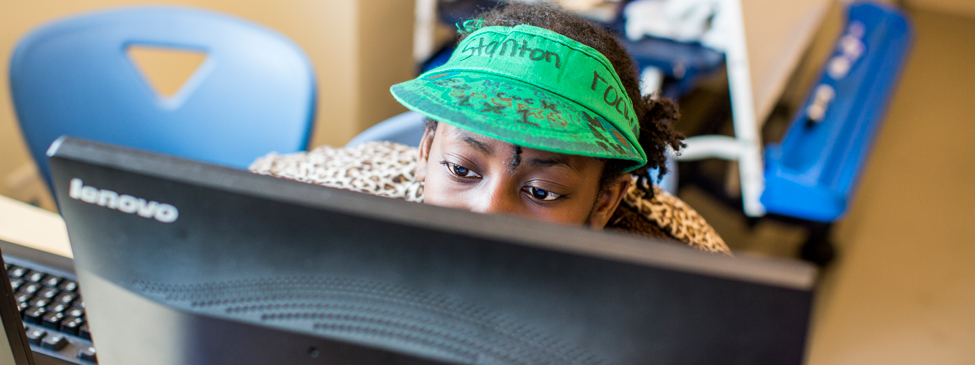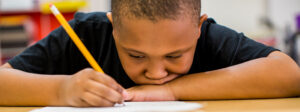Why are the coral reefs dying?
Who really “discovered” America?
Is it true bubblegum is made from oil?
Children will always have questions about things they don’t know. That’s the hallmark of childhood, right? But too often, kids don’t have the tools—whether it’s context, understanding, vocabulary, or materials—to find the answers they want independently. How can we give them opportunities to lead their own learning on topics that intrigue them—a key part of helping them meet challenging standards?
Two years ago, Student Achievement Partners presented an innovative solution: “expert packs,” or carefully curated grade level appropriate texts, films, webpages, comics, magazine articles, and more that help kids build knowledge about particular topics in history, science, or the world.
The idea is that as students independently read, watch, and click through these packs, they encounter key words and concepts that make them “experts” by the end. This is student-led learning, meant to counteract old methods of delivering knowledge—outdated textbooks, stand-and-deliver lectures, or brief historical reading material—that have proven to be less effective.
I’ve partnered with New Schools for New Orleans to develop several of these packs—16 in all—for kids in grades six to ten (though 11th and 12th grade students will also find them useful). Each contains very different material, but here are some common elements:
They are sequenced so each item is more challenging than the previous one.
Each expert pack is ordered to develop understanding as students move through at their own pace. With each step, new information is introduced to expand upon what was presented previously. In addition, students encounter the same words and ideas multiple times to help with comprehension and long-term retention.
For example, a pack on coral reefs begins with an explanation of a polyp: The tiny living creature that makes up all reefs. Students need this knowledge to understand diversity among the reefs, and later, why they’re dying. As they move through the pack, they encounter the word polyp several times—but also the words ecosystem, diversity, and organism. Each word and concept is foundational to understanding the composition of reefs, how they function, and the environment they inhabit.
They address topics and vocabulary that help students access future lessons.
Each pack covers content students may not readily encounter in school: immunizations, Buddhism, oil production and spills, women’s roles in World War II, or minerals, to name a few. They are designed to allow students to learn about the topic at hand, but also build knowledge that will allow them to make connections to other topics they’re more likely to study in school.
For example, learning more about the “real” Christopher Columbus allows students to speak with more authority on historical topics like slavery and Colonialism. It also allows them to reflect on this knowledge when they encounter future lessons on topics such as immigration or the conflict between Israel and Palestine.
They are meant to be student-driven.
As we’ve tried these packs out in classrooms, we’ve found it’s often teachers, not students, who struggle with them. Teachers are so used to supporting, talking, and answering questions that some find it difficult to step out of the way and let students own the work. But it’s a worthwhile task. After all, student-led learning is an important part of helping students truly master challenging content.
They are meant to be accessible.
Wherever possible, we’ve focused on selecting open source texts, videos, web pages and other materials. We also build packs in PDF form so they can be easily accessed and printed. Teachers and students don’t need access to high-speed Wi-Fi or expensive subscriptions to take full advantage of this content.
Doing the important work of student-led learning and discovery is challenging—and our hope is these packs arm teachers with more tools to help. Students can’t cultivate curiosity about marine biology, engineering, history or anthropology without the chance to explore these areas. Expert packs are just one way to give kids more independent access to interesting content, but we think they’re an exciting place to start.



